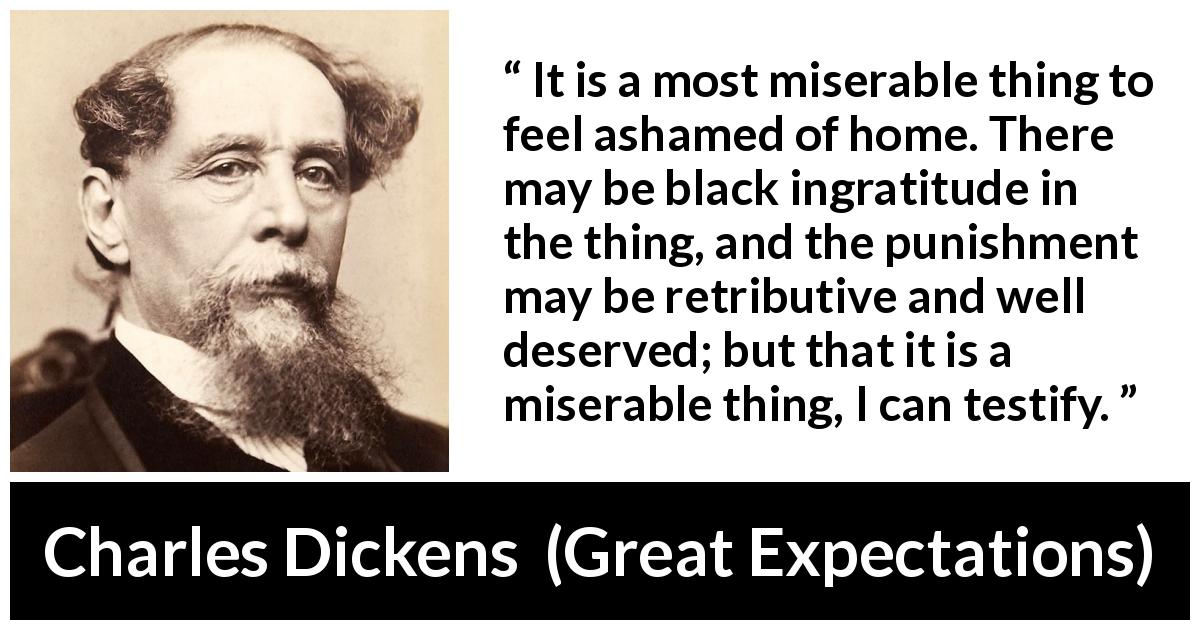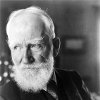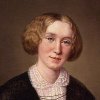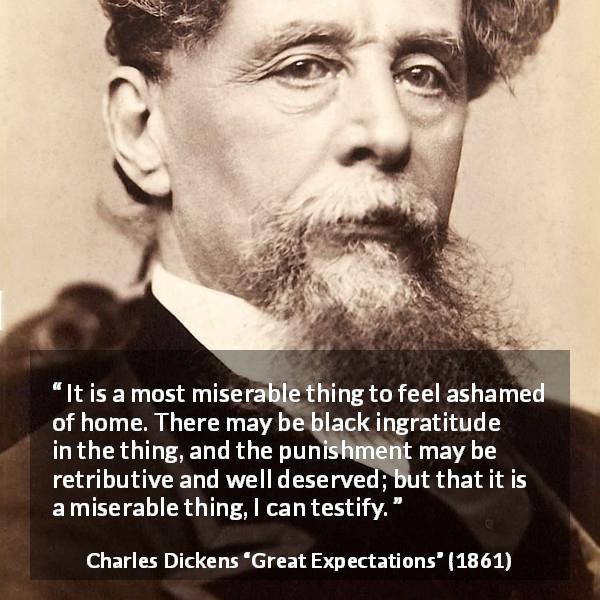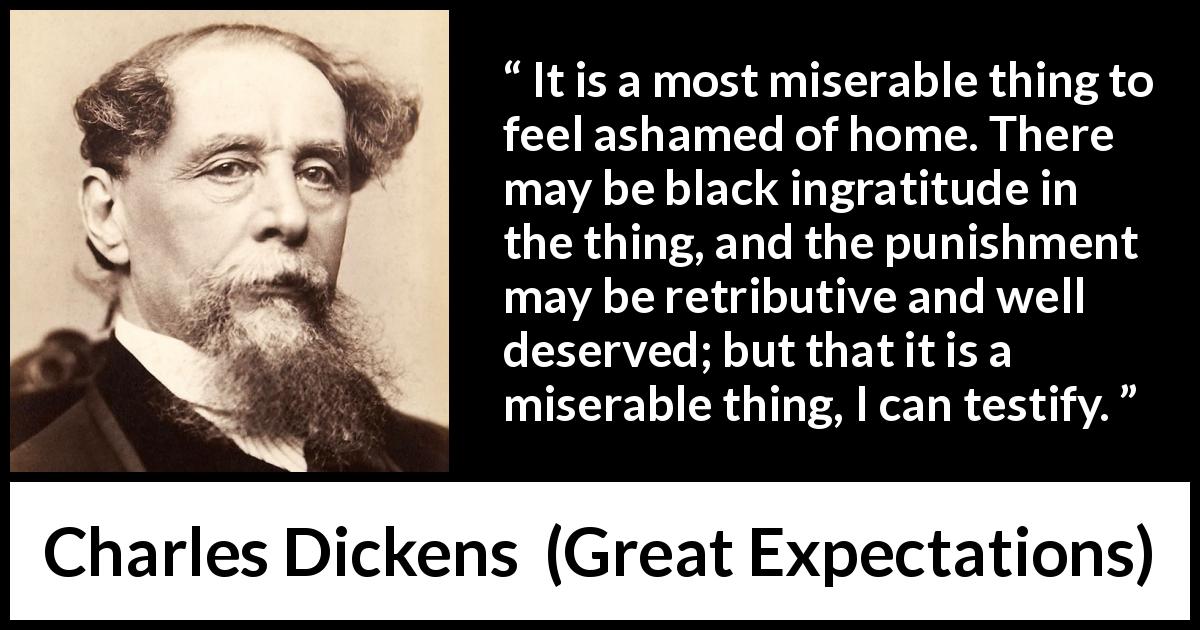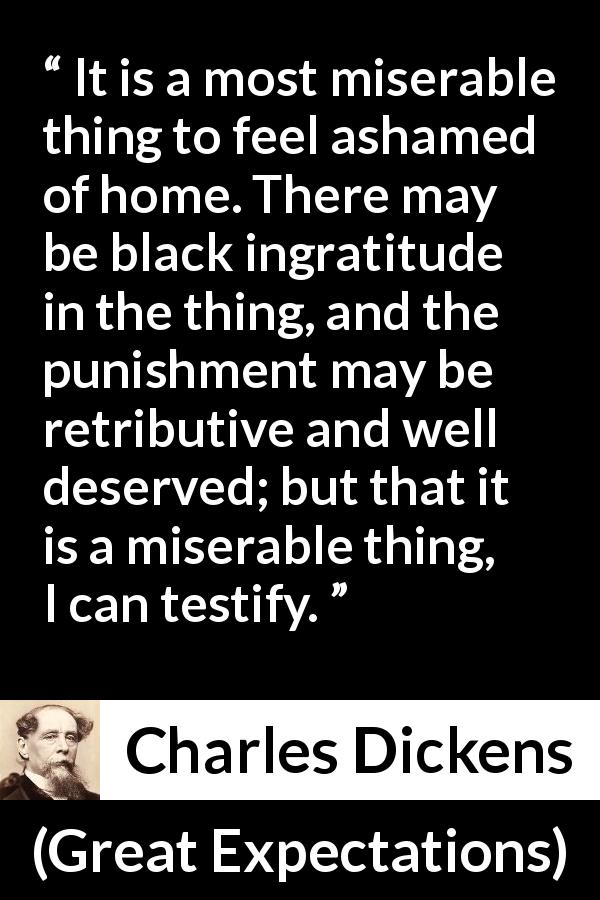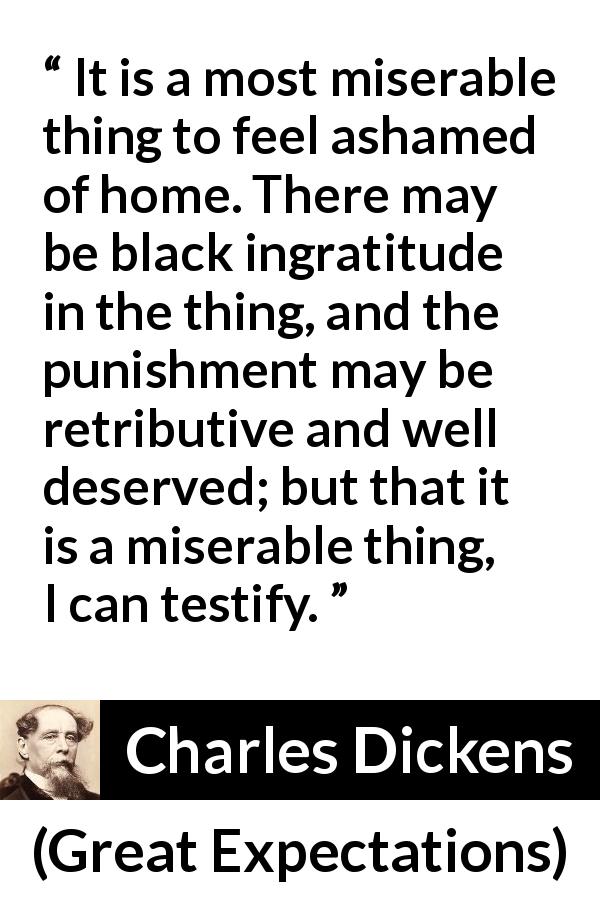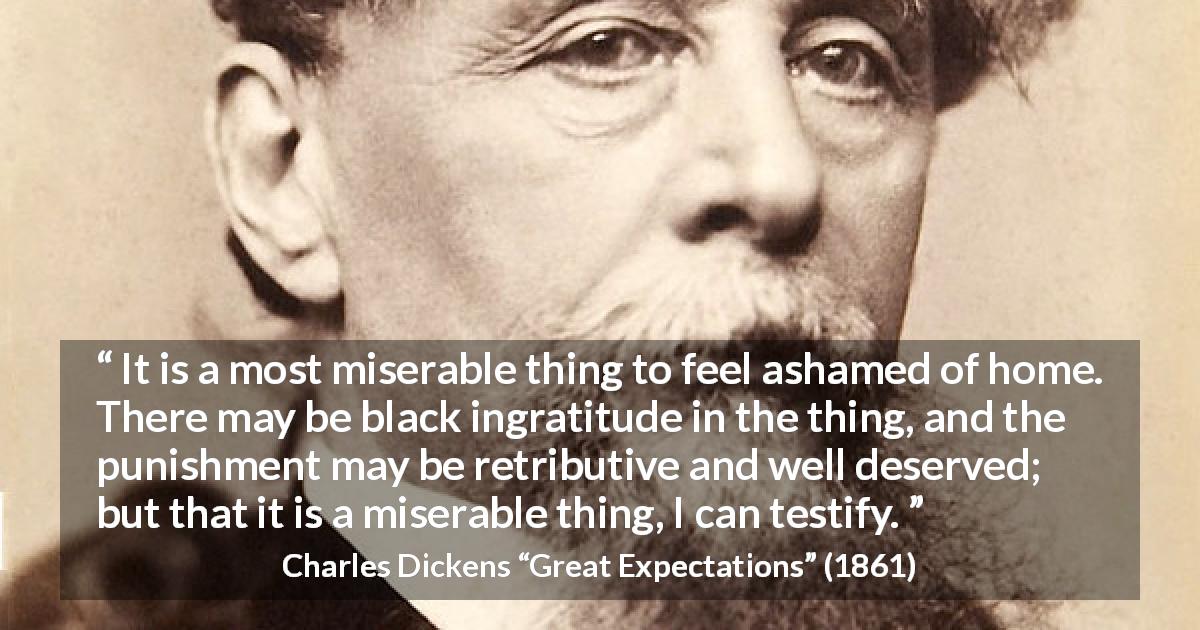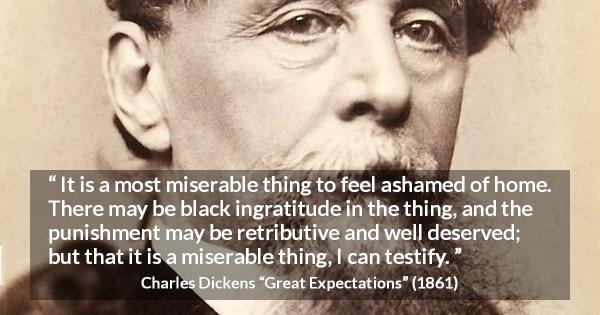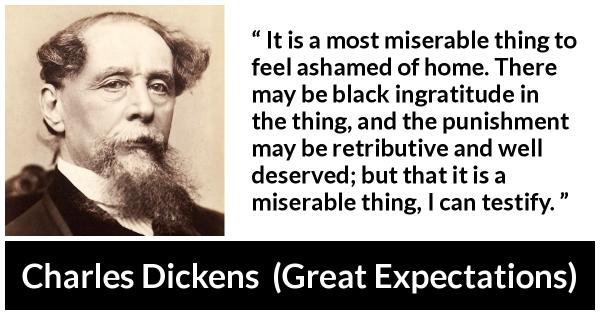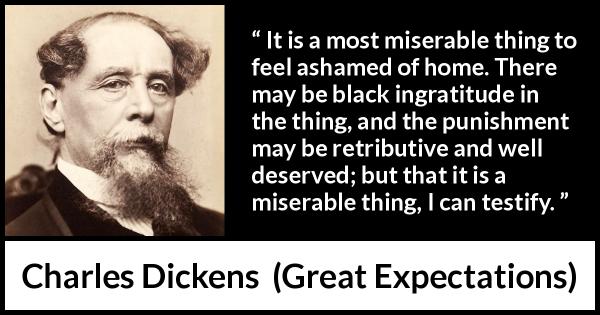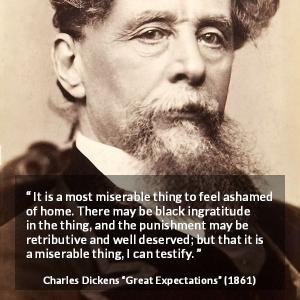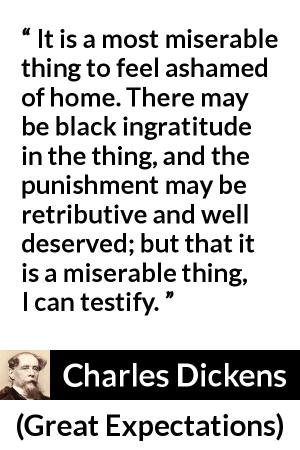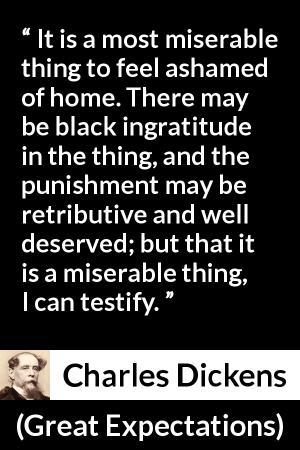“ It is a most miserable thing to feel ashamed of home. There may be black ingratitude in the thing, and the punishment may be retributive and well deserved; but that it is a miserable thing, I can testify. ”
Charles Dickens, Great Expectations (1861). copy citation
| Author | Charles Dickens |
|---|---|
| Source | Great Expectations |
| Topic | shame home misery |
| Date | 1861 |
| Language | English |
| Reference | |
| Note | |
| Weblink | http://www.gutenberg.org/files/1400/1400-h/1400-h.htm |
Context
“Finally, I remember that when I got into my little bedroom, I was truly wretched, and had a strong conviction on me that I should never like Joe's trade. I had liked it once, but once was not now.
CHAPTER XIV It is a most miserable thing to feel ashamed of home. There may be black ingratitude in the thing, and the punishment may be retributive and well deserved; but that it is a miserable thing, I can testify.
Home had never been a very pleasant place to me, because of my sister's temper. But, Joe had sanctified it, and I had believed in it. I had believed in the best parlor as a most elegant saloon; I had believed in the front door, as a mysterious portal of the Temple of State whose solemn opening was attended with a sacrifice of roast fowls; I had believed in the kitchen as a chaste though not magnificent apartment; I had believed in the forge as the glowing road to manhood and independence.” source
CHAPTER XIV It is a most miserable thing to feel ashamed of home. There may be black ingratitude in the thing, and the punishment may be retributive and well deserved; but that it is a miserable thing, I can testify.
Home had never been a very pleasant place to me, because of my sister's temper. But, Joe had sanctified it, and I had believed in it. I had believed in the best parlor as a most elegant saloon; I had believed in the front door, as a mysterious portal of the Temple of State whose solemn opening was attended with a sacrifice of roast fowls; I had believed in the kitchen as a chaste though not magnificent apartment; I had believed in the forge as the glowing road to manhood and independence.” source
